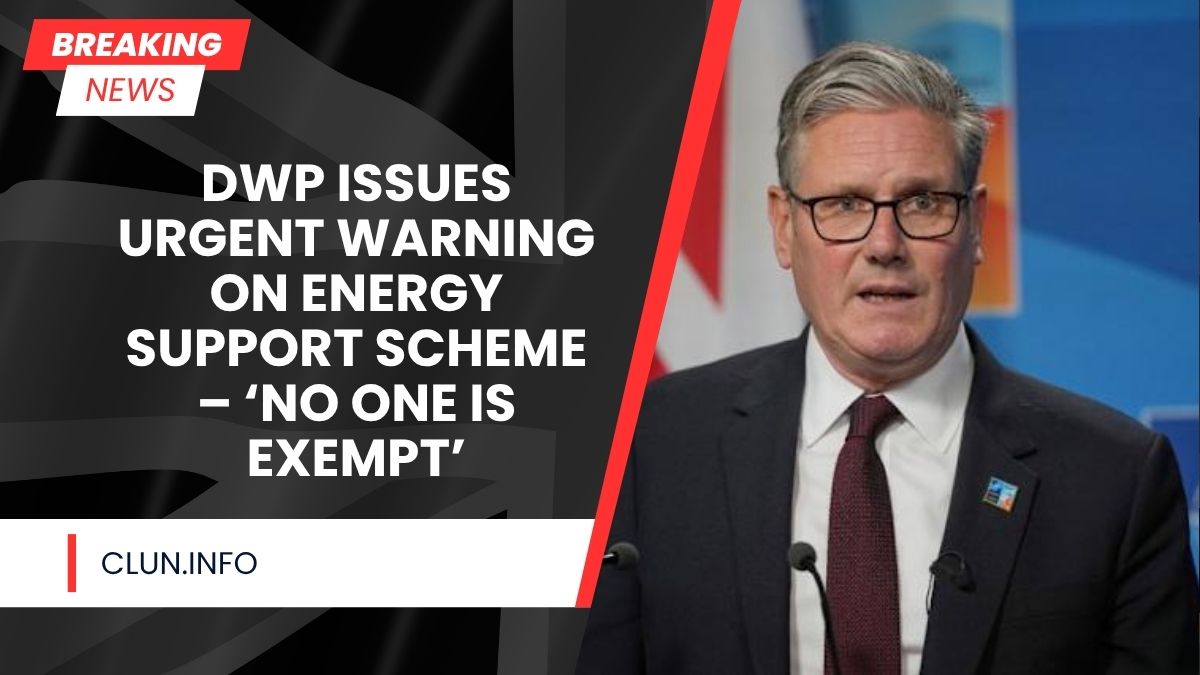The Department for Work and Pensions (DWP) has released an urgent warning concerning a wave of fraud attempts targeting individuals through fake energy support schemes. While many households may be eligible for financial assistance from their local council or energy supplier, genuine offers typically require the individual to make the first move, not the other way around.
Unfortunately, fraudsters are taking advantage of those grappling with rising energy costs by pretending to represent utility companies or government-backed support schemes. They often contact potential victims through text messages, emails, or even phone calls, claiming that personal banking details are required to unlock support payments.
DWP’s Official Statement on Social Media
In a recent post on X (formerly Twitter), the DWP warned:
“If you get a text about an ‘Energy Support Scheme’ it is a scam. Find out how to report and recover from any suspicious texts, phone calls, or emails via Stop! Think Fraud.”
No One is Safe – Everyone is Vulnerable
According to the Stop! Think Fraud campaign, scammers do not discriminate. Regardless of age, financial status, or location, anyone can fall prey to these schemes.
“Nobody is immune from fraud. The criminals behind it target people online and in their homes, often emotionally manipulating their victims before they steal money or personal data.”
Taking preventative action and increasing awareness can significantly reduce your chances of falling victim to identity theft or financial fraud.
Tips to Avoid Being Scammed
1. Never Share Personal or Financial Information
Keep sensitive data such as your bank account numbers, PIN, and online banking credentials private. Legitimate companies will never ask for this information through unsolicited messages or calls.
2. Review Your Bank Statements Frequently
Always monitor your account activity for unusual charges. If you notice anything suspicious, report it to your bank immediately and block your card. Many banks offer fraud hotlines to assist with such incidents.
3. Watch Out for Suspicious Communications
Scam emails and texts often contain grammatical errors or seem out of place. Avoid clicking on any embedded links or downloading attachments. Never share passwords or banking details with anyone over digital channels.
4. Avoid Clicking on Unverified Links
Do not download attachments or follow links sent via email or SMS, especially if they’re unsolicited. Install reputable antivirus software to protect against malware and phishing attacks.
Key Scam Warning Details
| Area of Concern | Details |
|---|---|
| Scam Type | Fake Energy Support Scheme |
| Common Methods of Contact | Text messages, emails, phone calls |
| Target | UK residents struggling with utility bills |
| Fraudulent Claim | Payment or grant access via submission of bank or personal information |
| Legitimate Support | Available only when individuals initiate contact with council/providers |
| Official Advice Channel | Stop! Think Fraud platform |
With cost-of-living pressures mounting, many may welcome offers of financial help. However, it’s essential to remain vigilant and verify any unsolicited communication that requests sensitive information.
The DWP’s warning serves as a stark reminder that fraudsters prey on vulnerability, but with the right precautions, you can protect yourself and your finances. Always double-check and report suspicious messages to avoid falling victim.
FAQs
What should I do if I receive a message about an energy support scheme?
Do not respond or click on any links. Instead, report it to Stop! Think Fraud and delete the message.
Can I get energy bill help from my local council?
Yes, genuine financial aid is available, but you must contact your local council or energy provider directly to apply.
How can I tell if an email or text is a scam?
Look for signs like spelling errors, unusual language, or urgent financial requests—all common indicators of phishing.




